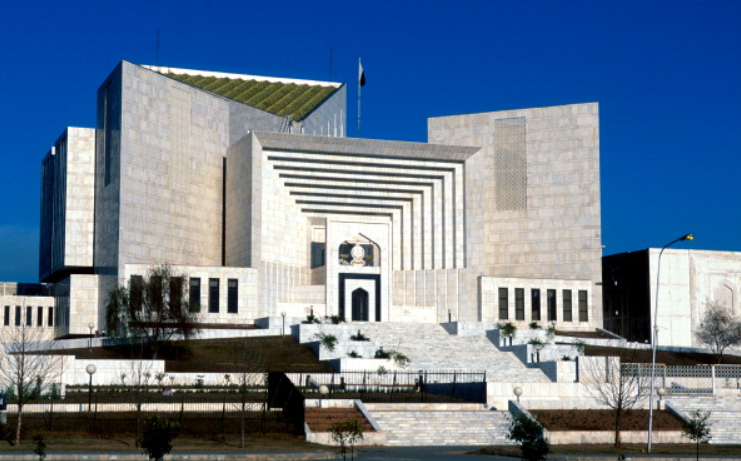ISLAMABAD: The Supreme Judicial Council (SJC), comprising five judges, has issued a 33-page detailed verdict on Friday, declaring that Sayyed Mazahar Ali Akbar Naqvi was found guilty of misconduct. As a result, they believe he should have been dismissed from his position as a judge and that the titles ‘Justice’ or ‘Judge’ should no longer be associated with his name.
The SJC discovered multiple instances of misbehavior by the judge, which negatively impacted the judiciary’s image. Although Mr. Naqvi resigned a day prior to the SJC’s proceedings on nine complaints against him under Article 209(6), the council chose to proceed, with CJP Qazi Faez Isa emphasizing the importance of demonstrating that “the judiciary is not above the law” to dispel any misconceptions.
The Supreme Judicial Council (SJC), led by the CJP, praised the Pakistan Bar Council (the highest governing body for lawyers) as well as the four provincial bar councils and Advocate Mian Dawood, who submitted complaints. Their actions aimed to maintain the rule of law and promote accountability.
Five accusations, including greed, misconduct, and unjust benefits, have been substantiated against Mazahar Naqvi.
Considering that at least five accusations made by the accusers against Mr. Naqvi were proven, the council found it necessary to determine that the respondent had breached his oath of office. This oath required adherence to the Judges’ Code of Conduct, as he violated several provisions within this code.
The council stated that Mr. Naqvi could not be considered “untouched by greed” or “above reproach,” and his conduct in both official and private matters was not “free from impropriety expected of a judge.” Consequently, he violated Articles II and III of the Code. Additionally, the Supreme Judicial Court’s opinion confirmed that he also breached Article IV, as his actions were driven by considerations of “personal advantage.”
Involved in personal gain, Mr. Naqvi was connected to a lawsuit initiated by Chaudhary Mohammad Shahbaz, who sold 100 Saint John’s Park, Lahore, to Mr. Naqvi. This involvement led him to wrongfully deprive some individuals of their valuable property, resulting in a violation of Article VI.
As per Article VI, a judge should strive to minimize involvement in disputes, either personally or on behalf of others, in industries, trade, or speculative activities that may lead to legal conflicts. Engaging the influence of one’s position for personal gain, whether immediate or future, is a severe transgression. A judge must refrain from acquiring financial or other obligations from private entities or individuals that may hinder their duties.
By accepting significant, unexplained gifts, Mr. Naqvi breached Article VI. These gifts included a Rs50 million payment, his sons receiving two commercial plots and two residential plots at a highly reduced price, and his daughter receiving £5,000.
During the proceedings, prosecution witnesses such as Mohammad Safdar Khan and Zahid Rafique, as mentioned by the SJC, attempted to support Mr. Naqvi’s justification for the price of 100 Saint John’s Park and the Rs50 million payment made by the developer. However, they failed to provide any explanation for why a registered company would settle its alleged debt to Mohammad Safdar in such an unusual manner, according to the SJC.
The court also pointed out that this situation was inexplicable and not legally compliant for a longstanding businessman like Zahid Rafique and a well-established company.
The SJC expressed its lack of trust in the testimonies of both Mr. Safdar and Mr. Zahid, as Mr. Naqvi did not offer any justifiable reason for this stance in his written response and chose not to testify. In his reply, Mr. Naqvi failed to disclose why a company had paid a substantial amount to purchase 100 Saint John’s Park, leading the SJC to question the propriety of a judge accepting such generosity from a property developer who claimed they barely knew each other. Since no reasonable explanation for the payment was provided, the SJC was left to assume that this inexplicable generosity was likely expected to be rewarded in the future.
The SJC expressed regret over Mr. Naqvi’s oath-taking ceremony on March 16, 2020, presided over by former CJP Gulzar Ahmed, as within a short span of less than two years, he acquired four properties – three in Islamabad and one in Rawalpindi.
The SJC lamented that Mr. Naqvi failed to provide a reasonable explanation for acquiring these properties, as the organizations from which he received them were established for providing housing to their members. The fact that he could not reside in all of these properties raised concerns, according to the SJC.


